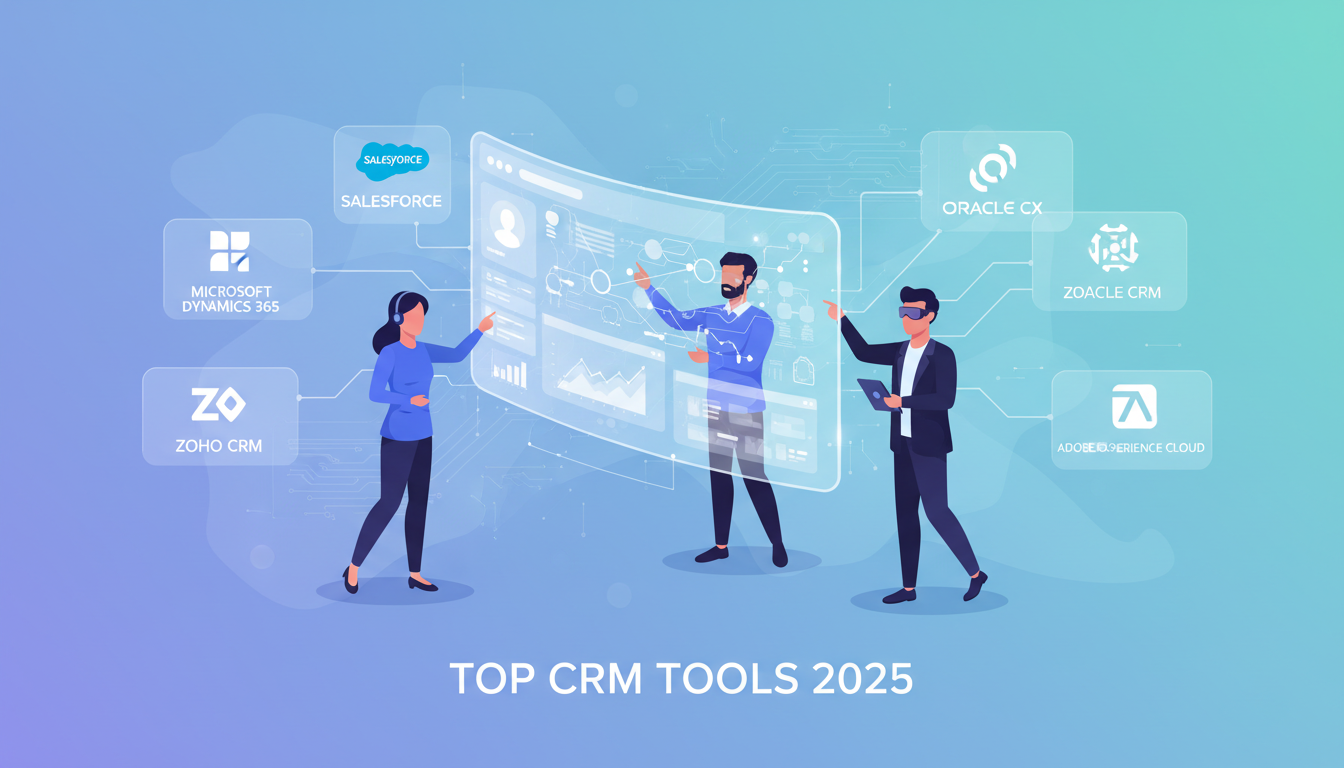Choosing a mobile app development company can make or break your project. This article dives into the critical factors you need to consider—technical skills, industry experience, and client reviews—to select a developer that best fits your app’s objectives. Expect a practical roadmap to guide your decision-making process, arming you with knowledge to navigate the complex landscape of mobile app development.
-
It’s essential to conduct extensive research when choosing a mobile app development agency, considering factors like location, expertise, and industry reputation to ensure technical proficiency and reliable performance.
-
Defining your mobile app’s requirements, including its purpose, target audience, desired features, and budget is critical before starting the development process to align the end product with user needs and business objectives.
-
Effective communication, thorough evaluation of the company’s portfolio, verification through client references, and a willingness to provide extensive support are key to finding a dedicated app development partner who prioritizes quality over cost.

Search for a Mobile App Development Company
Your search for the ideal mobile app development company necessitates extensive research. Focusing on factors such as location, expertise, and reputation can significantly shape your search. For instance, the U.S. stands as a major hub in the mobile app development industry, housing over 585,000 technology enterprises. These enterprises range from freelance to full-time companies operating in cities like New York, Chicago, and San Francisco.
Particularly, the U.S. market stands at the forefront of mobile app innovation for mobile devices, with American publishers having developed a staggering 185,950 apps on the Google Play Store and the Apple App Store. Mobile developers in the U.S are renowned for their diverse skills and expertise, innovative development, and efficient workflows, making them a preferred choice for many businesses.
But the prowess of app development isn’t limited to the U.S. Europe is a significant player in the mobile app development market as well, with companies like Luxoft and EPAM Systems offering strategic consulting, software development, and digital solution engineering across various industries like finance and healthcare.

Choosing a Mobile App Development Company
The decision to select a mobile app development company necessitate meticulous assessment. An ideal company should:
-
Possess advanced technical skills
-
Have a proven track record of industry experience
-
Have a good reputation in the market, as indicated by client reviews and testimonials
These factors can provide valuable insights into their reliability and performance.
The subsequent sections will further explore the evaluation of a company’s technical abilities and experience, along with the significance of client reviews and industry reputation.
Evaluating Technical Skills and Experience
The success of your app hinges significantly on the technical abilities of the mobile app development agency. A proficient company should be well-versed in various programming languages such as Java, Swift, or Kotlin, and should be able to apply this knowledge to create practical solutions. Moreover, their experience with mobile app development frameworks like React Native or Flutter is another important factor to consider.
A company’s technical experience includes:
-
Knowledge of programming languages and frameworks
-
Understanding of user experience design principles
-
Ability to create user-friendly interfaces
-
Adherence to best practices in software development
Do you want to find the perfect software company for your business, but don't know where to start? Begin with discovering Best Software Companies, see the details of Best Software Companies in Chicago!
Considering Client Reviews and Industry Reputation
Client testimonials and reviews offer a wealth of information for assessing previous clients’ experiences with the mobile app development agency. They can provide insights into:
-
The company’s ability to deliver projects on time
-
The company’s ability to maintain quality standards
-
The company’s ability to provide excellent customer service.
However, the company’s reputation isn’t just about positive client reviews. It also involves their industry reputation, which can be assessed by checking their feedback and ratings on professional networks and tech community platforms. Awards, certifications, and recognitions within the industry can also contribute to a company’s reputation and indicate a level of trust within the industry.

Determining Your Mobile App Requirements
A clear grasp of your mobile app requirements is essential before initiating the app development process. These requirements go beyond just a list of features; they include:
-
Identifying the app’s purpose
-
Understanding your target market
-
Prioritizing desired features
-
Setting a realistic budget
The following subsections will elaborate on each of these aspects, outlining their importance and effective definition methods.
App Purpose
Your entire project is grounded on the purpose of your mobile app. A well-defined purpose ensures that your app resonates with users and doesn’t get lost in the crowded app stores. It provides direction to your design and development teams, enabling them to create an app with effective app’s functionality that addresses a specific problem or need.
Your app’s purpose also involves determining a monetization strategy. Whether it’s in-app purchases, ads, or a subscription model, your monetization strategy should align with your app’s purpose and the value it provides to its users.
Target Audience
Recognizing your app’s target audience is a key stage in the app development process. Your target customer dictates the design, functionality, and marketing strategy of your app. By understanding their needs and preferences, you can create an app that resonates with them and meets their expectations.
Your target audience is more than just a demographic profile. It involves understanding their behaviors, preferences, and pain points. This information can be obtained through market research, user interviews, and surveys. You can better adapt your app to your target audience's needs the more you understand them.
Desired Features
Your mobile app’s success is heavily influenced by its features. They determine how users interact with your app and whether it meets their needs. Therefore, it’s important to prioritize the features that are most important to your target audience and that align with your app’s purpose.
However, it’s crucial to be mindful of your budget and time constraints when deciding on your app’s features. Trying to include too many features in the initial version of your app can lead to increased mobile app development costs and time. Therefore, it’s often best to start with a minimum viable product (MVP) that includes only the most essential features, and then add more features in future updates based on user feedback and needs.
Budget
The mobile app development process, also known as the mobile application development process, incorporates budgeting as a key component, as well as mobile app design process. It involves determining the financial resources that are available for the development of your app and allocating them accordingly. Your budget will influence many aspects of your app, including its features, design, and mobile app development strategy.
It’s important to note that while budget is a crucial factor, it shouldn’t be the only consideration when choosing a mobile app development agency. As we will discuss later, factors like the company’s expertise, experience, and reputation should also be taken into account.

Do you want to learn more about mobile app development costs? Click our content titled Mobile App Development: How Much Does It Cost.
Ensure You Can Communicate With Developers
Smooth collaboration and a successful project outcome hinge on effective communication with your app developers. Establishing clear communication channels and processes from the outset will allow you to effectively share your vision, provide feedback, and stay updated on the project’s progress.
The tools and platforms used for communication can range from:
-
Emails
-
Video calls
-
Project management software
-
Code sharing platforms
-
Operating systems
Whatever tools you choose, it’s important to establish ground rules for their use, such as appropriate times to use them, frequency of checks, and the tone of communication, to ensure everyone is on the same page.
In addition to effective communication, fostering a culture of transparency and open dialogue within the team is also crucial. This can enhance collaboration and lead to a more streamlined app development process.

Evaluate the Company's Portfolio
Examining a company’s portfolio serves as an excellent method to evaluate its design and development capabilities. A company’s portfolio provides a visual testament of their:
-
technical prowess
-
design sensibilities
-
creative process
-
attention to detail
-
ability to execute a project
It can give you a glimpse into their creative process, their attention to detail, and their ability to execute a project.
When examining a company’s portfolio, look beyond just the aesthetics of their previous projects. Consider the functionality of the apps they’ve developed, the industries they’ve worked in, and the complexity of the projects they’ve handled. This can give you a clear idea of their versatility and their ability to cater to diverse requirements.
In addition, a company’s portfolio can also provide insights into their commitment to inclusive design and accessibility. Companies that consider diverse user profiles and adhere to best practices such as the Web Content Accessibility Guidelines (WCAG) demonstrate a higher level of sophistication in software development.

Assessing Company Expertise
When selecting a mobile app development company, another vital factor to consider is their expertise. A company’s expertise extends beyond just their technical skills - it includes their experience in your specific industry and their understanding of your target audience’s needs.
In the next subsections, we will delve deeper into how you can assess a company’s technical expertise and industry experience.
Technical Expertise
A mobile app development company’s ability to deliver a high-quality mobile application is heavily dependent on their technical expertise. It’s important to assess the knowledge of mobile app developers in various programming languages, platforms, and cross-platform development for mobile apps, as well as their experience with web app development.
This includes their proficiency in programming languages like Kotlin and Java, their understanding of Android SDK and its components, and their ability to work with APIs. Moreover, their familiarity with Material Design and UI principles, and their ability to use Android Studio, an integrated development environment (IDE) for Android app development, are also important factors to consider.
Do you also want to learn about soft launching? See the details of How To Soft Launch Successfully.
Industry Experience
The success of your mobile app is largely influenced by industry experience. A company that has worked on similar projects or in your specific industry will have a deeper understanding of your target audience’s needs and the unique challenges and opportunities in your industry.
Evaluating a company’s industry experience involves reviewing their portfolio and confirming their track record of successful projects. Companies with diverse clients and projects demonstrate their versatility and adaptability to different requirements and industries.

Ask for References
In the selection process, soliciting references from a mobile app development company is a vital step. Previous clients can provide valuable insights into their experiences with the company and the company’s performance.
Client references can provide insights into:
-
How the development company handles communication
-
How the development company handles project management
-
How the development company handles challenges that may arise during the mobile app development process
Positive feedback from previous clients can indicate a reliable and successful partnership with the mobile app development company.

Find a Company Willing to Go the Extra Mile
A truly committed mobile development company is distinguished by their willingness to go the extra mile. This involves more than just delivering the project on time and within budget. It’s about demonstrating a commitment to your project’s success and being willing to exceed expectations.
A company that prioritizes innovation and openness to new ideas, engages in excellent project management, and offers post-project support is likely committed to going the extra mile. Transparency and open communication channels, along with regular progress updates, also suggest that a company is committed to client satisfaction.
A company’s willingness to go beyond the standard is often reflected in their portfolio. Some indicators of a company’s dedication to deliver high-quality products include:
-
The presence of a dedicated quality assurance (QA) team that rigorously tests mobile apps before release
-
A track record of successful projects and satisfied clients
-
Positive reviews and testimonials from previous clients
-
Awards and recognition for their work
These indicators show that the company is willing to go beyond the standard and deliver exceptional results.

Don’t Let the Price Determine Your Choice
Although budget is a significant factor, it should not be the only deciding factor when selecting a mobile app development company. Prioritizing quality and speed over price can lead to better outcomes, as less than 20% of customers choose the lowest priced quote.
Offering the lowest price can unintentionally signal to consumers that the service provider lacks the expertise necessary to complete the job, as price is often interpreted as an indicator of quality. On the other hand, a fair pricing strategy suggests that a business has confidence in its abilities and the expertise to deliver, which can be more attractive to consumers than the lowest cost option.
Companies with strong positive reputations attract better people and are perceived as providing more value, allowing them to charge a premium. So, it’s advisable to base your decision on factors like the company’s expertise, experience, and reputation, rather than simply focusing on the price.
In conclusion, choosing the right mobile app development company involves a combination of factors - from conducting thorough research and evaluating technical expertise, to considering client reviews and industry reputation, to defining clear app requirements and establishing effective communication channels. While the whole mobile app testing process may seem daunting, taking the time to carefully consider each of these factors can result in a successful partnership and a successful app.

Frequently Asked Questions
What is needed to develop a mobile app?
To develop a mobile app, you need to create a concept, determine monetization, decide on features, mobile app interface design, and develop the mobile application in a test environment. Then, test every feature and finally send the mobile application to app stores. Additionally, you'll need to establish a team, conduct competitive research, outline core features, create mockups, plan app security, begin coding, perform multiple tests, and gather and implement feedback.
How much does it cost to build a mobile app?
Building a mobile app can cost anywhere from $10,000 to $500,000 on average, with fully custom and feature-rich apps sometimes exceeding half a million dollars.
Is mobile app development easy?
Mobile app development process can be challenging for beginners due to the advanced programming skills required and the less versatile nature of mobile programming languages.
Why is it important to choose the right mobile app development company?
Choosing the right mobile app development company is crucial as it can bring your vision to life and significantly impact your app's success in the market.
"Create a seamless mobile experience. Connect with expert app developers on Edvido."
















